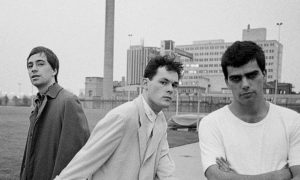
Photo by David Corio / Redferns
A former member of THE CURE, bassist Michael Dempsey first became aware of ASSOCIATES when the two bands were label mates at Chris Parry’s Fiction label.
Comprising of the kaleidoscopic vocal presence of Billy MacKenzie and the driven musicality of Alan Rankine, Dempsey soon joined ASSOCIATES as a silent partner and along with drummer John Murphy, both played on the three albums which defined their reputation; ‘The Affectionate Punch’, ‘Fourth Drawer Down’ and ‘Sulk’.
Now reissued as 2CD deluxe editions via BMG alongside ‘The Very Best of ASSOCIATES’ compendium for the more cautious listener, these collections have been supervised and produced by Dempsey. Each package includes previously unreleased tracks and 28 page booklets featuring unseen photos, rare memorabilia and extensive sleeve notes to do justice to the ASSOCIATES legacy.
Michael Dempsey kindly chatted about this new ASSOCIATES reissue campaign and the challenges of the remastering / repackaging process in the 21st century.
What did you think bonded you with Billy and Alan musically?
I often wonder that too because they came from a very different part of the country. People describe your music as belonging to the time when it came out ie the 80s in the case of ASSOCIATES. But I think their music was very much 60s and 70s, much more so than a lot of people who were out there. I think that’s where my impressions came from.
You piece it together over time and when I listen back to a lot of ASSOCIATES stuff, it’s that really exciting 60s music that seeped into their subconscious, in the same way it did for me. When I first met them, I was amazed. I’d never come across anyone that put together music in the way that they did. It wasn’t wildly experimental or anything like that, but it was packed with these reference points that I could relate to.
It was enough to make you jump ship from THE CURE. What was your creative dynamic with them like, compared with Robert Smith and Lol Tolhurst?
Billy and Alan were so different and Billy’s personality was so beguiling, the music just drew you in. With THE CURE, we were touring intensely, there wasn’t that same sort of activity going on in ASSOCIATES. THE CURE got their debut album out before ASSOCIATES, so we were slightly rivals on the label I guess.
They were constantly vying for attention from Fiction. THE CURE were a lot easier to get going, we had a band and could tour while Alan and Bill were a duo who didn’t have a band. It would have been easier 10 or 20 years later to understand how to put an act like that out. But at the time, it wasn’t very clear how Fiction would deal with these guys. So ASSOCIATES were always kept hanging on and they were always hanging around the studio. They were really good company so it wasn’t difficult for me.
You are quoted as saying the recording of ‘Sulk’ had the band inventing ways of recording with click tracks and overdubs to make the sound as lush as possible. What were the most unusual things you witnessed or were asked to do?
The notion of us being wildly experimental came from them changing their sound quite often. When they were a duo, they wanted to be a band. When they were a band, they wanted to be electronic. And then came ‘Sulk’, which is hard to categorise. They didn’t do it in the same way as everybody else.
I found on reflection that they were using a lot of old school recording techniques. Half speed was a typical ASSOCIATES thing. To get it tight like a machine, you recorded at half speed, played it back at normal speed and it would sound a bit weird. That was something the kind of engineers and producers we worked with would have been well used to, because it was a typical 70s recording technique.
The experimenting started with their songwriting, the way they put things together was quite traditional in that it was voice and guitar. Also, they weren’t modish, they didn’t want to sound whatever it was in at that moment, they almost perversely wanted to sound unlike that. Bill would often describe the sound he wanted in oblique ways like “make the bassline green”… you’d play it and he’d go “NO! That’s blue! You’ve got to play it more green!” Some of it was just for fun, why not? *laughs*
Let’s just do it wrong! It was a perverse streak, a bit like what we had in THE CURE too. There’s somebody telling you how to do something… when you’re 19-20 years old, you try and do it in exactly the opposite way! Once they got hold of the controls, they would try and subvert the sound to make their music unusual. It often worked, sometimes it didn’t but more often, it worked. We didn’t just keep it bass / drums / guitar, we would bring in any instruments that were knocking around. So if you could lay your hands on Rick Wakeman’s vibraphone before it was picked up, you would!
How did producer Mike Hedges help in the creative process?
Mike’s biggest contribution was indulgence. So he was happy to try anything. Lots of producers will say “C’mon guys, this is really a waste of time!” whereas Mike was quite prepared to try stuff.
When you have that sort of attitude and you don’t have anyone saying “No, look at the time, we really must crack on”, it’s great. He was experimenting as much as we were. So he wasn’t a defacto producer who was calling the shots or overriding flights of fancy, he was open to ideas. THE CURE found him sympathetic too.
What was your approach with regards these reissues, compared with the V2 series in 2000?
I wanted it to be out there and we had various suitors. ASSOCIATES were very clever… unlike everybody else at the time, they actually licenced their material. So that gave us the opportunity every 5-10 years to re-licence it. You normally signed a contract into perpetuity. They were shrewd, but perhaps more by accident than design. With BMG, my expectations weren’t all that high, not because I had my pre-conceptions about them, but just because in the past, people would make a cursory attempt to put it out, but they didn’t try really hard.
But BMG were completely different from day one. They became almost more obsessive than I did. We had in Ian Gilchrist, a very good label manager, he wanted to go that extra mile, every mile. That meant we dug very deep. It was them that suggested putting ‘Sulk’ out on vinyl, I wasn’t expecting that. Then he suggested making everything a double and getting some really good pictures. That’s the one thing about ASSOCIATES, they were pretty chaotic in their existence. The idea that any of us would carry a camera would be unthinkable so pictures are very hard to come by, as are any moving images.
BMG were thorough and it’s taken about a year to bring them out. People generally bark loudly about their product but I’m happy to bark loudly, with an element of surprise, because I didn’t think it would come out as well as it has.
What can you do now that you couldn’t do then?
First of all, you can sample at 92 KHz 48bit, that’s a very respectable sound. Even to my older ears, it makes a difference. It’s like wearing a particularly fine pair of glasses, you can hear more detail at the higher sample rate. The idea of vinyl, ASSOCIATES’ previous attempts were always disastrous because we were experimental. Things wouldn’t be simple and often dense, so it would be hard to cut, moving forwards and backwards to the master for weeks and weeks.
There would be after thoughts of speeding things up or slowing them down as we did the cut. It was very hard at the time to get us sounding good, but we were never pleased how it sounded. It was cut quietly to err on the side of caution. When the digital age came along, it was much more of a flexible process. Back then, you had two controls, which were treble and bass! That wasn’t going to be sufficient for ASSOCIATES! *laughs*
We used to watch all these people fiddle around, but now we’re more informed. What’s great for us is that you can make things sound appropriate to whatever medium somebody wants to listen to the music in. So it’s great having everything.
I don’t know many people who actually listen to vinyl, I’ve listened to it and thought “this is interesting”. But I also quite like listening to something that hasn’t got any surface noise on it too.
Taking all that into account, why does ‘18 Carat Love Affair’ appear to be a different mix to the original 1982 vinyl single version?
It’s interesting; what you have to understand is ASSOCIATES never made a fetish of looking after their master tapes. So when you finished recording something, that was it. You didn’t need the tape, so it stayed in the studio it was recorded in. Maybe they got moved years later and put in a cellar which got damp when it rained! So for example, there isn’t any pure tape that says “Definitive ‘Sulk’ Master”.
Also, typically, we’d go into the mastering room and someone would say “It’s a little bit like it’s dragging, shall we speed it up a bit?” – so you’re speeding up the master tape to make your vinyl… but who’s making a note of what percentage it was sped up at? It’s really hard, but we don’t have the definitive production masters of each record, so you have to piece it together.
Your record player may be running a bit slow or fast. By ’18 Carat Love Affair’, I think we’d moved over to another producer Mark Arthurworrey to finish things off, because Mike Hedges was working with SIOUXSIE & THE BANSHEES. Listening back, he didn’t actually remix, he more EQ-ed so that might be why you hear more or less of something. Again, that may have been tweaked in the final process to cut the vinyl. All I can offer is my best approximation and I’ve decided I quite like it like that. As an exercise, it still keeps it alive.
Did you have to make any concessions to suit the download / streaming format that some favour today?
Not really, you make available your best possible master and then you hand it over to whoever. I was learning that Apple are quite fussy and use various studios to get their finished product, whereas Amazon are less fussy. Where do you stop? If I was supremely conscientious and fully employed in this, I could take it all the way but there’s a point you have to hand it over, so I surrender at a certain point.
How do you look back on the band imploding in the wake of the success of ‘Sulk’? Was there anything in hindsight that could have been done to keep Billy and Alan working together?
We would have had to have waited until we were 52, had wisdom and more understanding. It was stupid, the 80s were excessive and the focus was on style rather than content, ASSOCIATES kind of had both.
It was considered that ‘Sulk’ was a big sounding record and needed lots of people to recreate it live… it’s quite easy to see now that it was the completely wrong thing to do. Because Billy was an instinctive guy, he knew when something was wrong and would often judge people just from their clothes… that can be frustrating, because some people don’t dress particularly well. BUT, he kind of had a point as well, because you are the pair of shoes you wear very often. So he would size people up amazingly accurately. *laughs*
As the thing ballooned, he felt he was losing control of the situation and the only thing he could do was to say “No, I don’t want to do this!” – he’s the one person that you can’t do without, along with Alan as well. What should we have done? I say they should have gone out as a duo with a drum machine; Billy would have loved that because he loved SUICIDE.
The name ASSOCIATES, he was always keen to tell me time and time again, was that he liked to be associated with people, he didn’t want to carry a John, Paul, George and Ringo around with him. It would have been much better if he and Alan had simply stripped it right back… the idea of stripping things down didn’t come to be mainstream until very much later.
I think Alan on guitar, with a vibraphone player and Billy singing would have been a nice sound. These songs are really good, they don’t depend entirely on production technique which a lot of stuff did at that time. When I first heard their entire repertoire of about 50 songs, they sat down in their bedroom and played the lot, and it was just voice and guitar. So that could have translated very simply to live and I think that would have saved them.
But back then, people didn’t have that sort of grasp or flexibility, it was a lot harder to do things. Things are a lot simpler now. Music is a bit more respectable and there are better people working in it too. If we were in that situation today, I’d know exactly what to do and there would be the possibility of everyone responding to that.
What are your personal favourites from these releases?
I’ve always loved ‘Skipping’ because I helped write it, but it also captures that exuberance and I know Billy liked that a lot as well, he felt that was a really strong track on ‘Sulk’. I also think ‘No’ is a very powerful, dark song which always works for me too.
People will no doubt criticise the extras as being just that and perhaps being a little superfluous, but they illustrate how you get to the hits. They’re stepping stones along the way; they’re not perfect but I find them very intriguing.
Perhaps one of my favourites is the track that I close ‘Sulk’ CD2 with, which is ‘Grecian 2000’. That was the last piece of music that we recorded before the ill-fated tour started up… that was the way it was going. When you listen to that, it’s really tantalising. Billy did start on a vocal, I remember him singing it but it wasn’t recorded. They were moving onto the next phase, yet this great steamroller got in the way… they should have gone back to the studio and just wrote another 10 of these and had another album.
Is there much left in the ASSOCIATES vaults that aren’t on these reissues?
Back in 2000 when I last did it, I thought “that’s it, nothing else is going to come up”… but because the ASSOCIATES vault never seems definitive, this time, much more stuff did surface. The longest, most intense period is trying to trawl through who might possibly have something. The multi-tracks of ‘Club Country’ and ‘Party Fears Two’ were lost a long time ago and miraculously, I don’t know where it came from, we finally found ‘Club Country’. We still don’t have ‘Party Fears Two’, so somebody has got that somewhere or it’s at the bottom of the River Tay. So next time somebody asks me to do this, who knows?
I knew they existed but we only just got the masters for the John Leckie produced tracks; one is ‘Australia’ and the other is an early version of ‘Arrogance Gave Him Up’ called ‘Me, Myself & The Tragic Story’. ‘Australia’ is interesting because it’s a completely different production so had we gone down the John Leckie road, ‘Sulk’ would have sounded very different.
What’s your take on the continual interest in ASSOCIATES?
It doesn’t surprise me. I find it hard, then and now, to describe what they sound like. They were outsiders, and that’s sort of where I came from with THE CURE, we were on the edges of lots of things, but never sounded like anybody.
While other bands managed to get a contemporary sound and prosper, I don’t think ASSOCIATES ever got a contemporary sound, and so didn’t prosper! But long term, that makes it more fascinating for a lot of people. It’s that ultraplicity of references that you hear in the music which draws disparate people in, but it’s not a particular sound. That’s why I think people still find them very intriguing.
You’ve got a great singer, me and Alan were talking about this today and about who around at the time would really have stood up against Billy… some kept it simple and pulled it off, but Billy didn’t keep it simple. He often tried too hard, but he worked it beyond the call of duty sometimes, particularly live.
He could do things no-one else could do with his voice; everybody recognised that at the time and people still recognise that now.It was the combination of him and Alan; as Billy was a brilliant singer, Alan was a brilliant musician who could play anything, and did play anything. Between the two of them, they were great songwriters too, they really loved music. When you’ve got that collision of positives, then you’re going to come up with something different and outstanding.
ELECTRICITYCLUB.CO.UK gives its warmest thanks to Michael Dempsey
Additional thanks to Stuart Kirkham at Hall Or Nothing Independent Publicity
‘The Affectionate Punch’, ‘Fourth Drawer Down’
, ‘Sulk’
and ‘The Very Best of ASSOCIATES’
are available now as 2CD packages via BMG
https://www.facebook.com/theassociatesofficial/
Text and Interview by Chi Ming Lai
21st May 2016

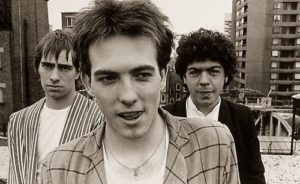
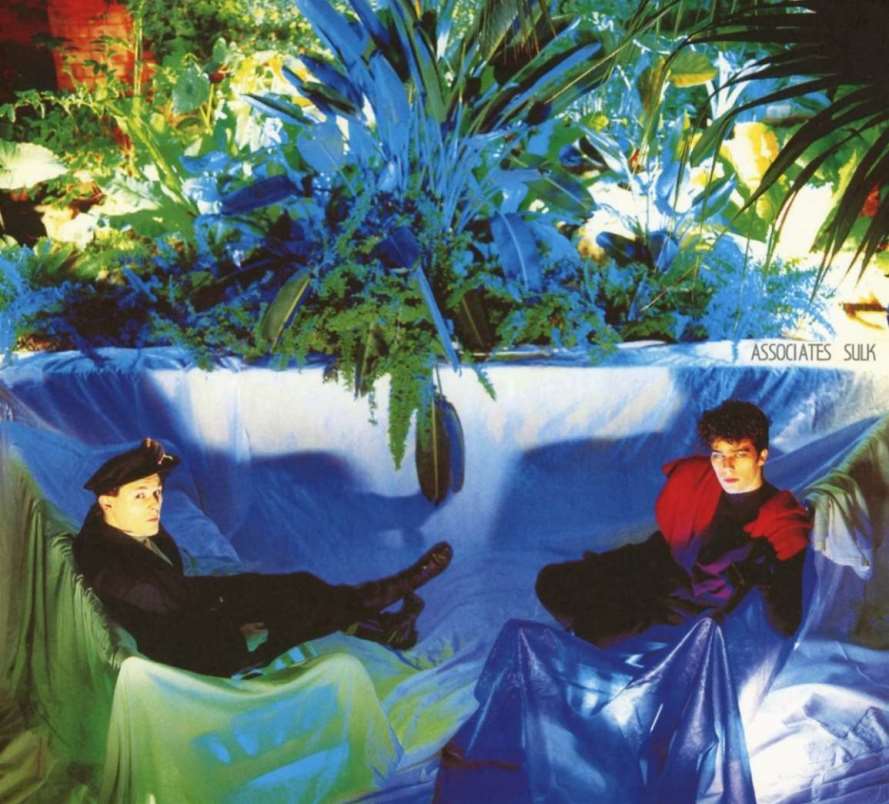
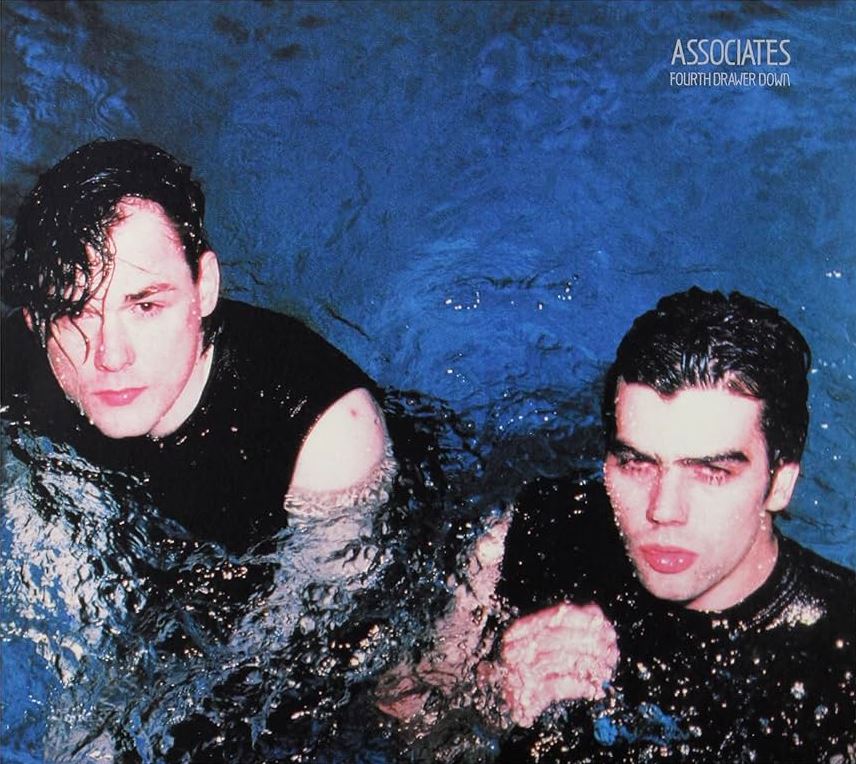
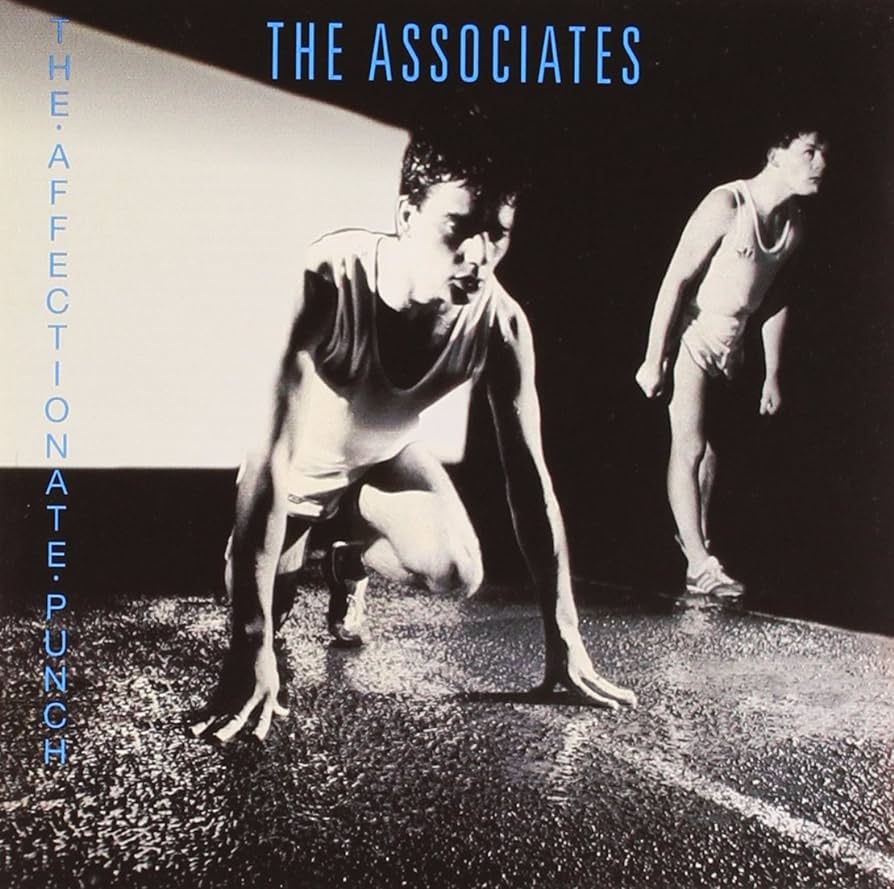
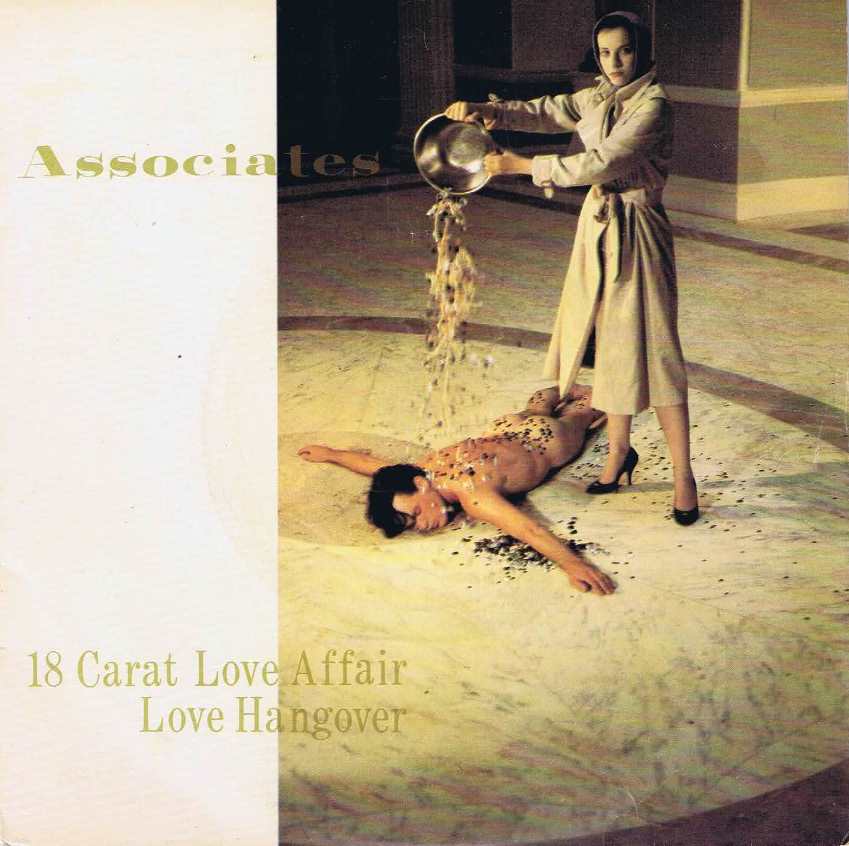
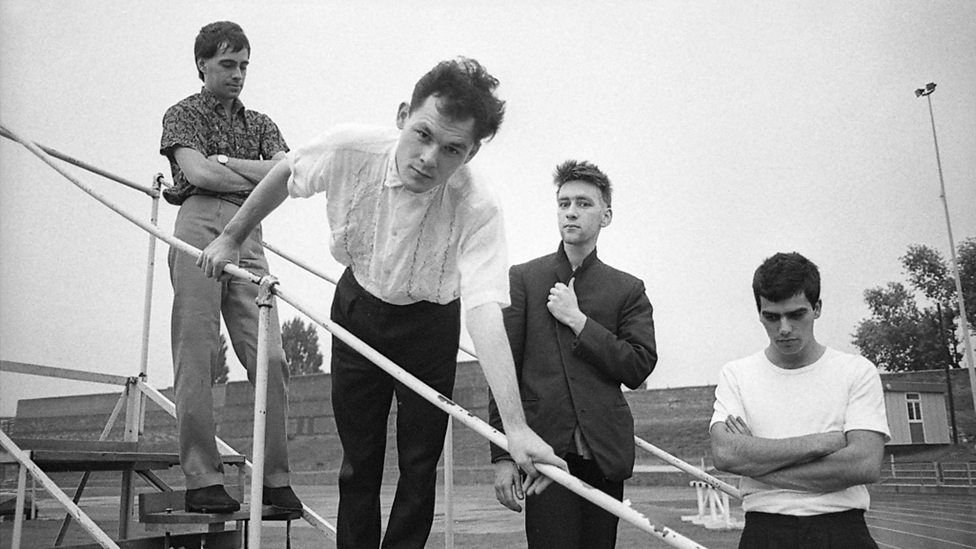
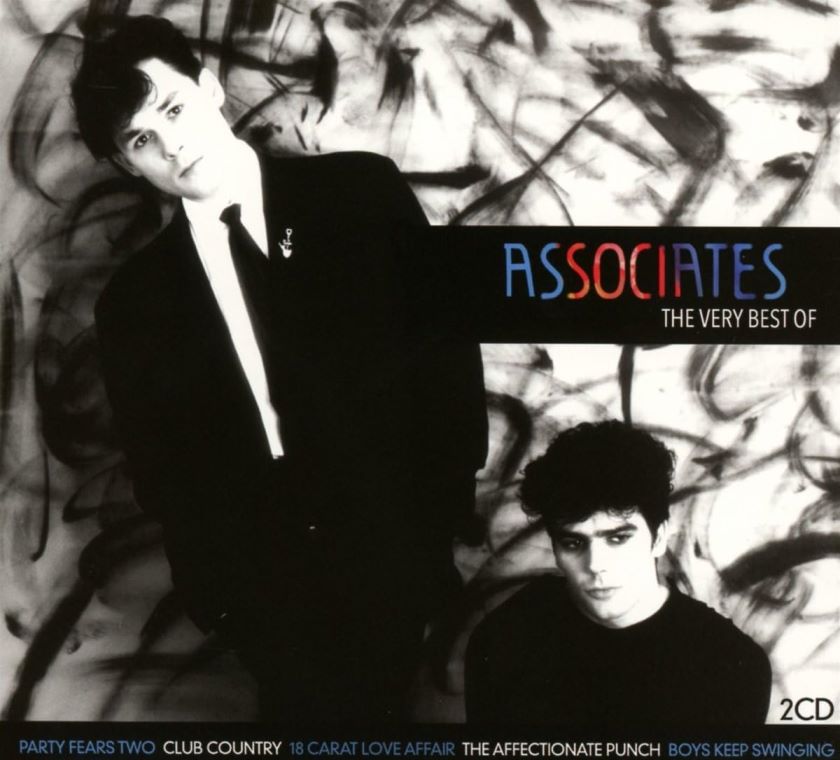
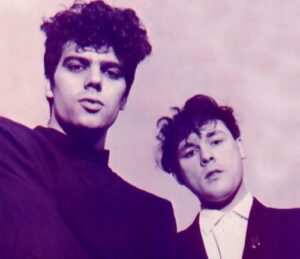
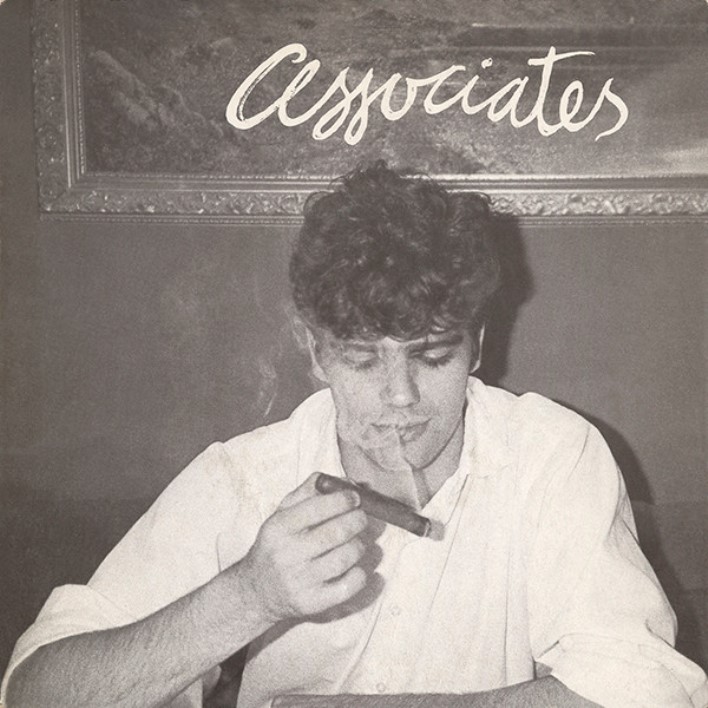
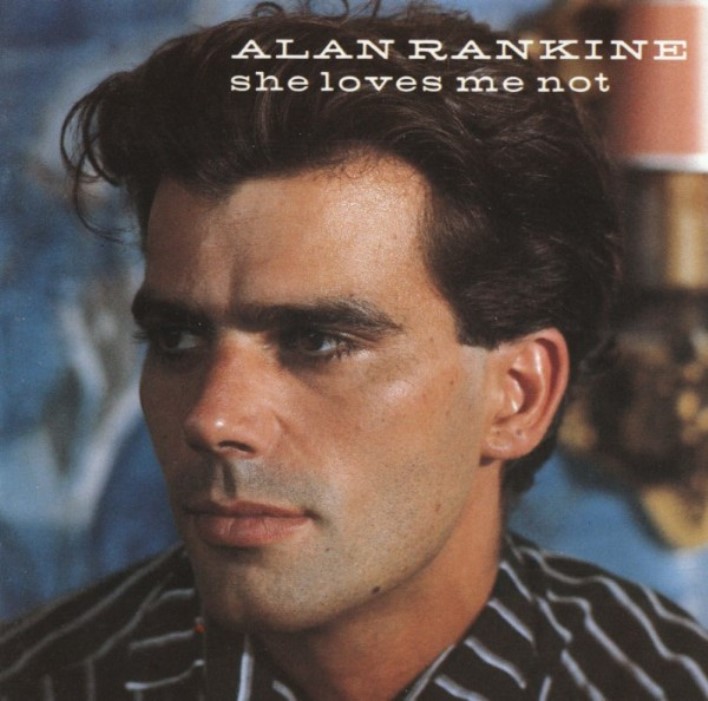
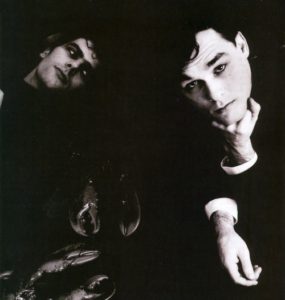

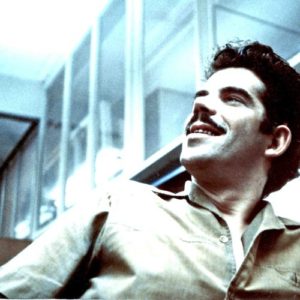
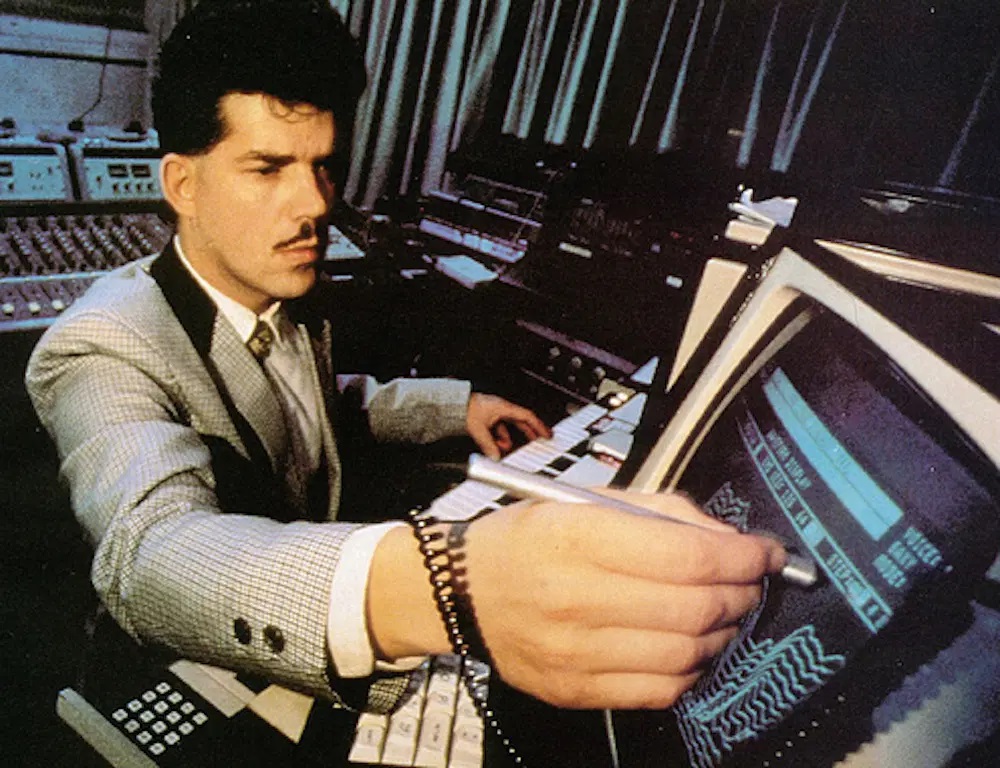
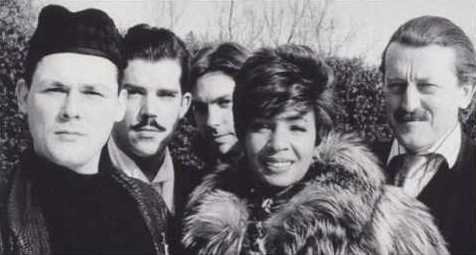

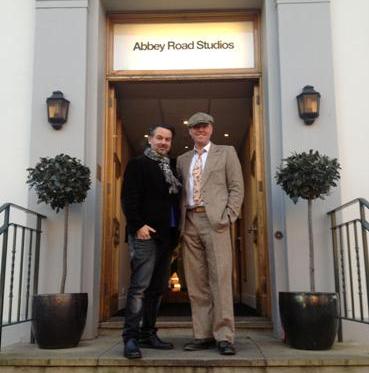
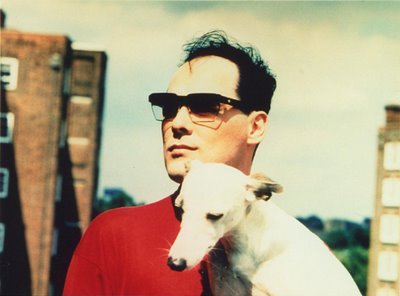
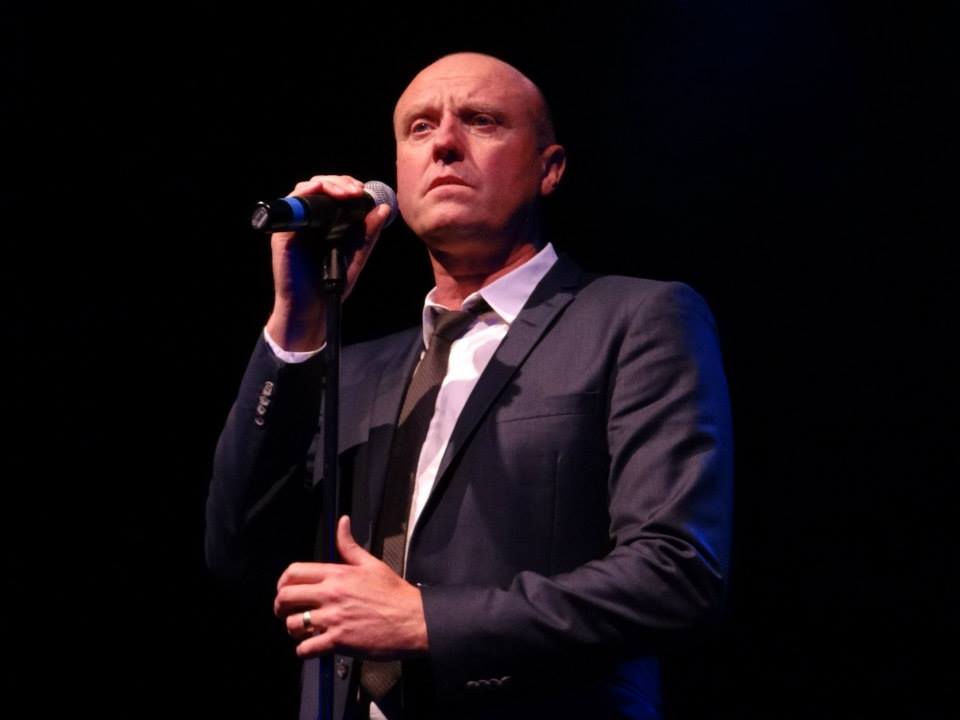
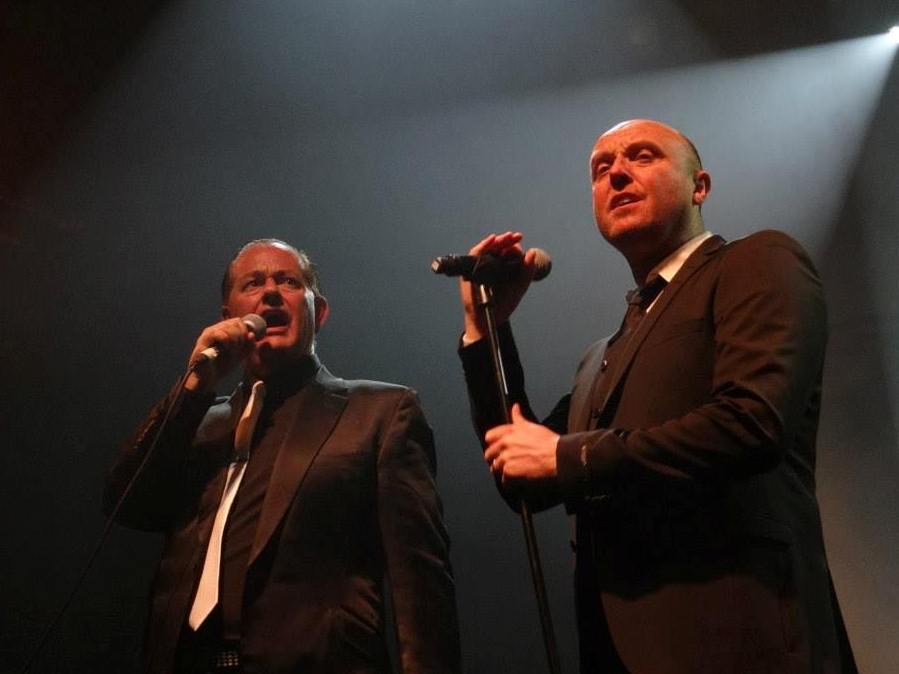
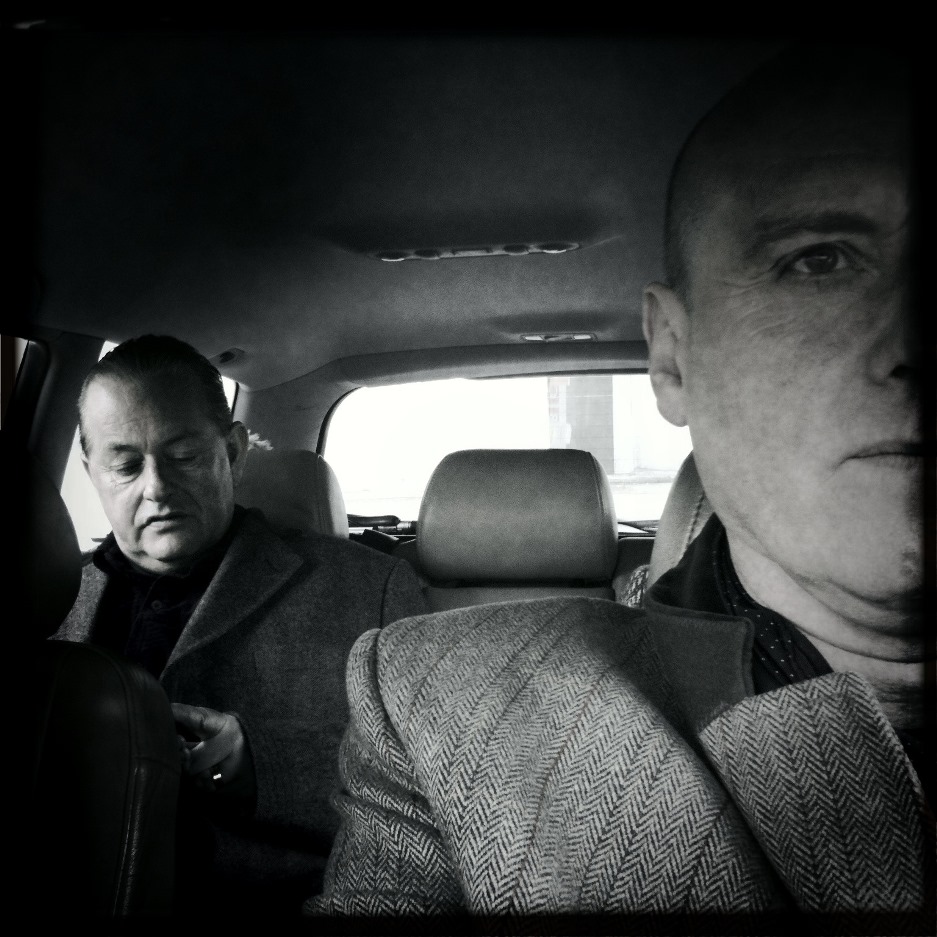
Follow Us!